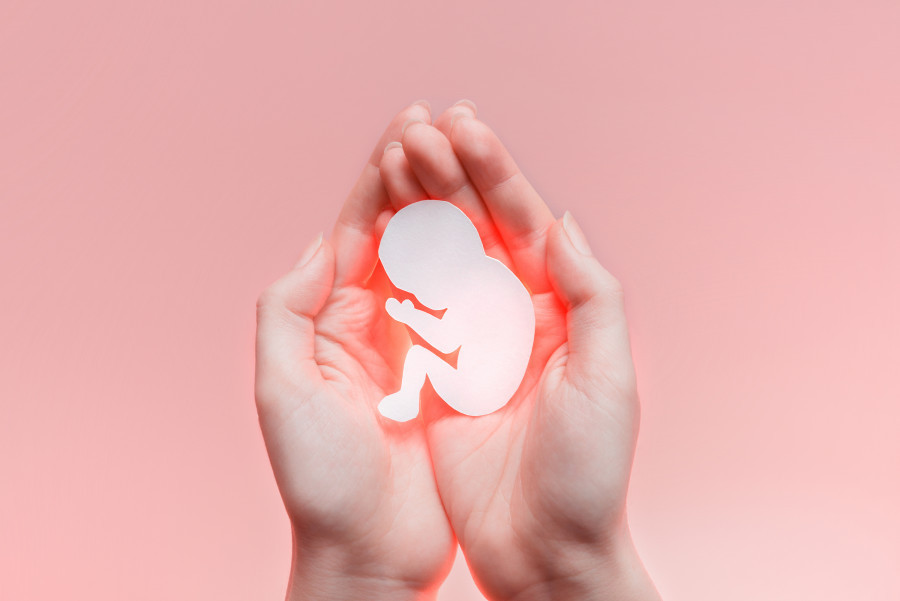Health
Illegal abortions continue killing women
Nepal legalised abortion in 2002. Every year about 100,000 women undergo the procedure at government-authorised clinics.
Arjun Poudel
Last Thursday, a 35-year-old woman from Dhangadhi of Kailali district died while undergoing an abortion at a local clinic. The clinic, named ‘Marie Stopes Community Clinic’, which used medication to terminate the pregnancy of the woman, turned out to be illegally operated.
“We are still investigating the case,” Kuldip Chand, deputy superintendent of police at District Police Office Kailali, told the Post over the phone from Dhangadhi. “The clinic operator is in judicial custody and his wife is absconding.”
Abortion was legalised in Nepal in 2002, a milestone for women’s reproductive rights, their empowerment, and their right to bodily autonomy. With legalisation, persecution and jail terms for women who terminated unwanted pregnancies ended and unsafe abortions decreased significantly.
However, even after more than two decades of legalisation, women continue to die from abortion-related complications, especially from services being offered by illegally operated clinics.
According to Chand, the victim first went to a state-run hospital to terminate her unwanted pregnancy of 12 weeks with the consent of her husband, since they already had four children. Health workers at the hospital counselled her about the possible risks. The woman approached a private clinic for service but it too denied her. She then approached the Marie Stopes clinic, which provided the medical abortion.
“After her health started deteriorating due to excessive bleeding, she was referred to the state-run health facility, where she breathed her last,” Chand said.
Issuing a press statement, Marie Stopes International Nepal said that ‘Marie Stopes Community Clinic’ is in no way affiliated to it or its implementing partner Sunaulo Parivar Nepal.
“This tragic incident highlights the danger posed by imitator clinics whose policies and quality assurance may not be in line with reputable health care providers that meet the highest standards of care, working in partnership with the government of Nepal,” the statement read. “The clinic in question had recently received an interlocutory order from the Department of the Industry to cease using ‘Marie Stopes’ name and trademark but had continued to do so.”
Between 1996 and 2016, the maternal mortality rate in Nepal fell from 539 to 239 per 100, 000 births, with the country achieving the Millennium Development Goal—a feat for which the legalisation of abortions played a significant role, doctors say.
A new census report by the National Statistics Office shows that in every 100,000 live births, 151 women still die from maternity-related complications. Of the total maternal deaths, six percent (37 women) had undergone abortions or suffered a miscarriage, according to the report.
Every year, around 100,000 women undergo abortions in Nepal at legally-authorised clinics and health facilities. Gynaecologists, however, say the real number of abortions could be several times more than the government figure, as all abortions do not get reported, especially the medical abortions.
According to a recent UNFPA report on the “neglected crisis of unintended pregnancy”, half of the 1.2 million pregnancies in Nepal in 2017 were unintended and nearly 359,000 were aborted.
“Unintended pregnancy is a reality for millions each year, accounting for nearly half of all pregnancies,” said the report. “Sixty percent of these unintended pregnancies will end in abortion.”
The report further stated that “the toll of these pregnancies is—and has long been—unseen.”
Doctors suspect that a ‘medical abortion kit’—a series of pills that abort a pregnancy within nine weeks—are being used as a contraception tool.
In the Dhangadhi case, the woman might have suffered a uterine rupture due to the use of abortion pills in late pregnancy, which caused excessive bleeding, doctors said.
Section 4 (15) of the Safe Motherhood and Reproductive Health Rights Act allows abortions as late as 28 weeks in cases of rape, incest, serious health risks to the mother or if the fetus is found to have genetic defects. General abortions can be conducted at up to 12 weeks, according to the Act.
Nepal’s target under the UN Sustainable Development Goals is to reduce the maternal mortality rate to 75 per 100,000 births by 2030.



 14.24°C Kathmandu
14.24°C Kathmandu















